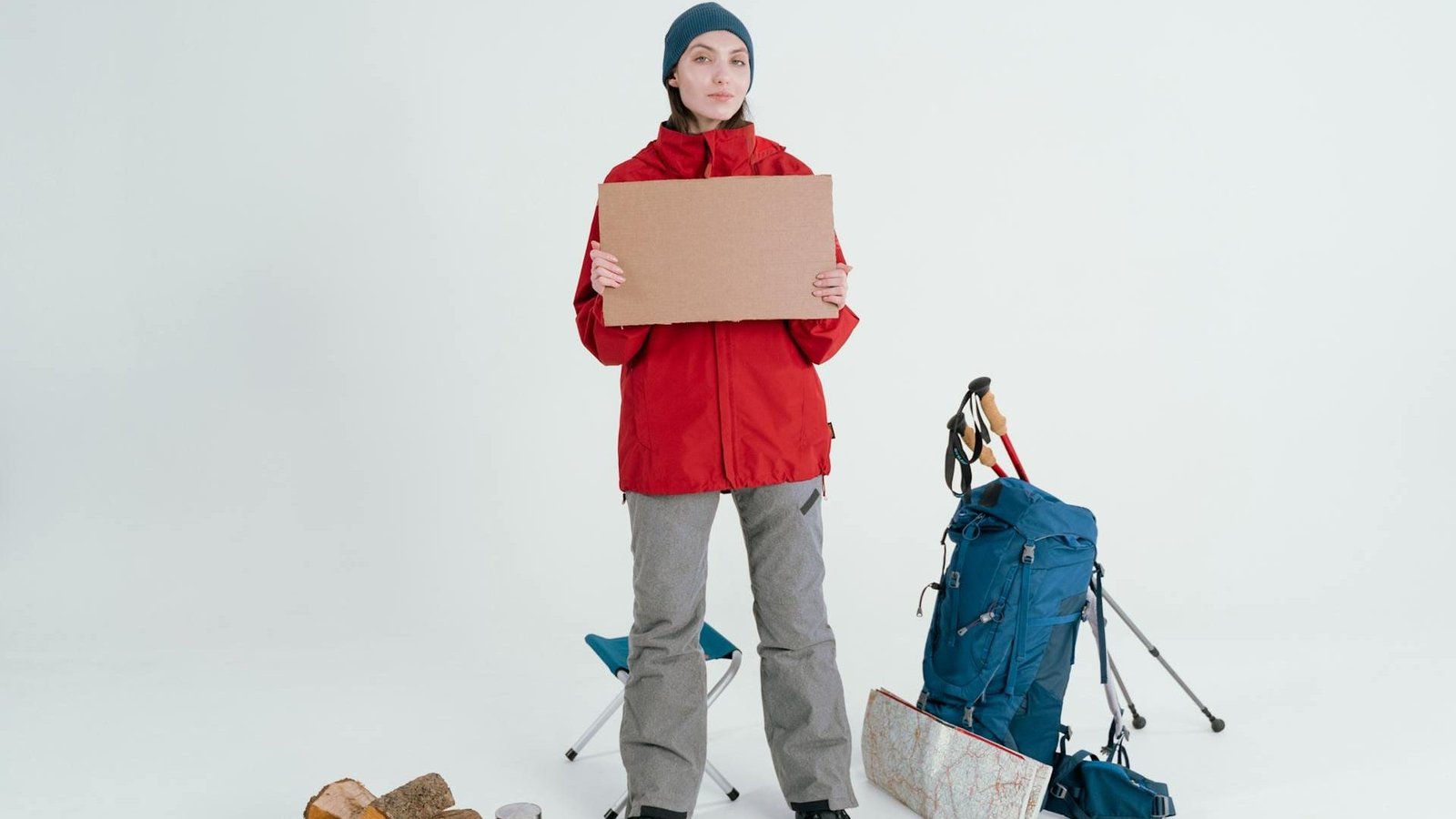
There’s something truly magical about spending time in nature, and camping is one of the best ways to experience it. Whether you’re a seasoned explorer or just starting your outdoor journey, learning how to plan a camping trip is the foundation for a stress-free and memorable adventure. From choosing the perfect campsite to packing the right gear, a little preparation goes a long way. Not only does planning help you avoid surprises, but it also allows you to immerse yourself in the joys of the great outdoors fully. So, let’s dive in and make your next camping trip one to remember!
Why Learning How to Plan a Camping Trip Matters.
Planning a camping trip is the key to ensuring a successful and enjoyable outdoor adventure. When you take the time to learn how to plan a camping trip, you can avoid common pitfalls like forgetting essential gear or arriving unprepared for the weather. To have a stress-free camping experience, make a detailed checklist. Research your campsite and prepare meals ahead of time. Whether you’re going on a weekend trip or a longer adventure, good planning helps you enjoy nature. It also lets you spend quality time with loved ones and create lasting memories.
Whether you’re a first-time camper or a seasoned adventurer, these tips will help you make the most of your outdoor experience.
1. Start with a camping trip checklist.
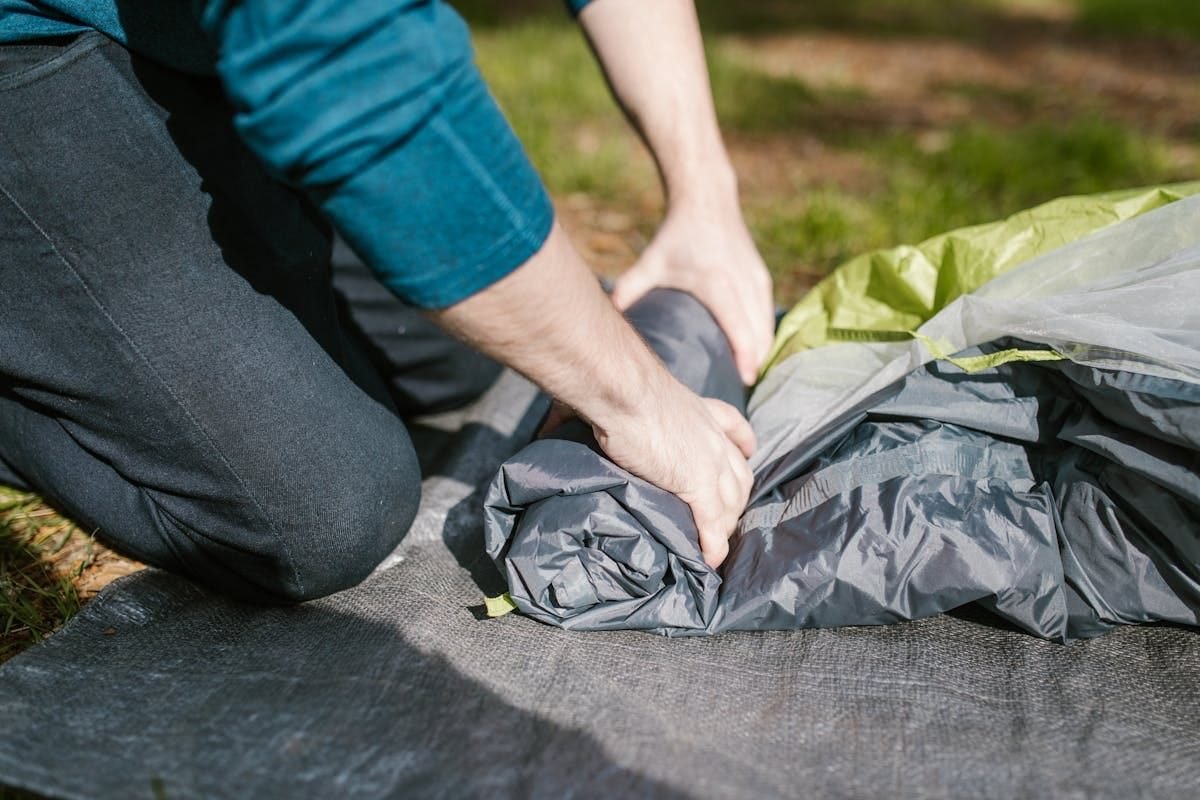
The first step to a successful camping trip is creating a camping checklist. A well-organized list ensures you don’t forget any essentials, from gear to food and safety items. Here’s what to include:
- Shelter: Tent, stakes, guylines, and a footprint or tarp.
- Sleeping Gear: Sleeping bag, sleeping pad, and pillow.
- Cooking Supplies: Portable stove, fuel, cookware, and utensils.
- Clothing: Weather-appropriate layers, rain gear, and sturdy footwear.
- Safety Items: First aid kit, flashlight, whistle, and multi-tool.
Stay prepared and stress-free on your next trip! Check out The Ultimate Camping Packing List to ensure you have all the essentials for every adventure.
2. Choose the Perfect Campsite.
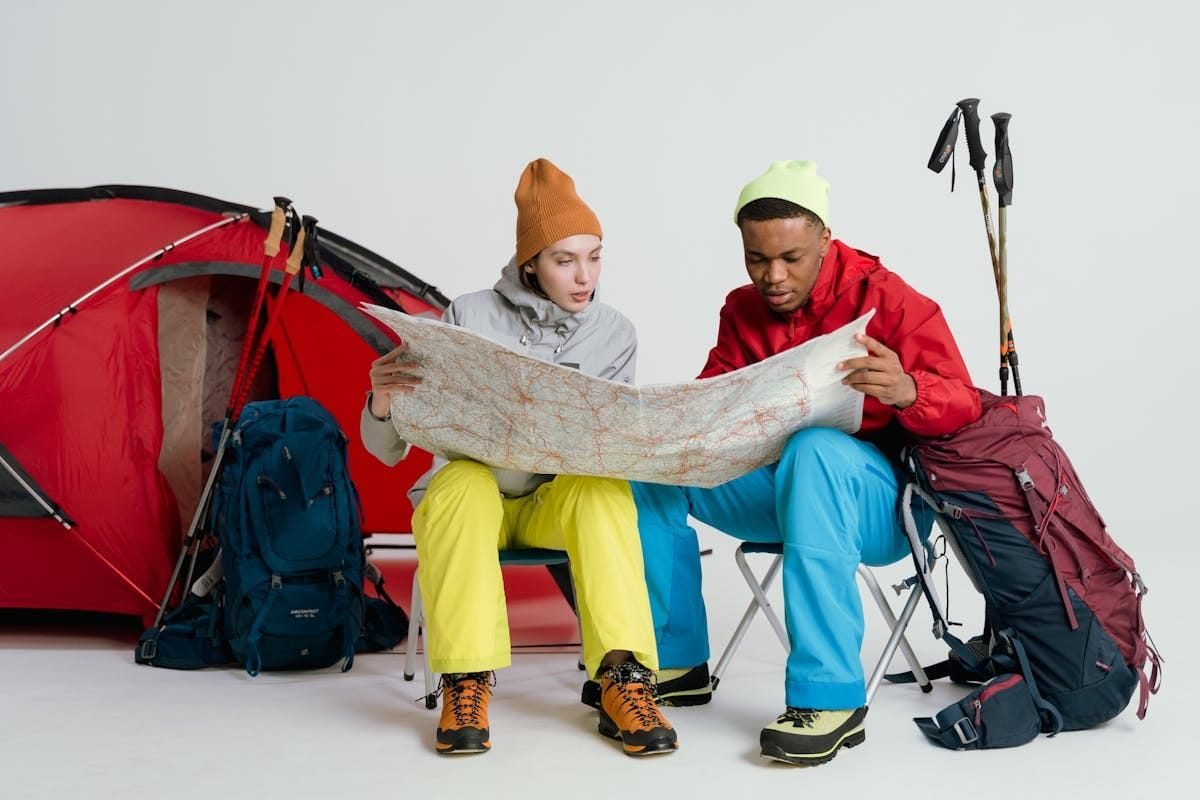
Choosing the perfect campsite can significantly enhance or completely undermine your outdoor adventure. The right location sets the tone for your experience and influences your comfort, safety, and enjoyment throughout the trip. Here’s how to choose wisely:
- Research: Look for campgrounds that match your preferences (e.g., family-friendly, pet-friendly, or remote).
- Amenities: Decide if you need facilities like restrooms, showers, or potable water.
- Location: Consider proximity to hiking trails, lakes, or other attractions.
- Terrain: Look for flat, shaded areas with good drainage.
For more tips, please read our guide: How to Choose a Campsite: Your Exciting Adventure Awaits!
3. camping meal plan.

Delicious and well-prepared food is an essential foundation for any camping adventure. The aroma of grilled meats and seasoned vegetables wafting through the fresh forest air can elevate the outdoor experience. A warm meal shared by the campfire feeds the body and brings friends and family closer together. It creates lasting memories under a sky full of stars. Here’s how to plan your meals:
- Keep It Simple: Choose easy-to-make recipes that require minimal prep and cleanup.
- Prep Ahead: Chop vegetables, marinate meat, and pack spices at home.
- Pack Smart: Use airtight containers to keep food fresh and prevent spills.
- Don’t Forget Snacks: Bring energy-boosting snacks like trail mix, granola bars, and fresh fruit.
Make your camping meals unforgettable! Explore Campfire Cooking Ideas for easy, delicious recipes that elevate your next outdoor adventure.
4. Pack the Right Gear.
Having the right gear can greatly improve your travel experience. It makes your trip more comfortable and much more fun. The right gear can protect you from the weather. It can also help you move better. With the right tools, you will have everything you need. This lets you fully enjoy the adventure ahead. Here’s what to pack:
- Shelter: A reliable tent, sleeping bag, and sleeping pad.
- Cooking Equipment: Portable stove, fuel, and lightweight cookware.
- Clothing: Layers for changing weather, rain gear, and sturdy shoes.
- Extras: Headlamp, camping chair, and a good book.
Read Camping Gear Essentials: What You Need for a complete list of essentials.
5. Prepare for Safety.
Ensuring safety should consistently be at the forefront of every camping adventure. Whether under a sky full of stars or near tall trees, it is essential to be aware of dangers. Taking steps to stay safe will help you enjoy your time outdoors without worry. To prepare for unexpected weather changes, be mindful of local wildlife, and prioritize safety. This way, you can fully enjoy nature’s beauty and peace. Here’s how to stay safe:
- First Aid Kit: Pack bandages, antiseptic wipes, pain relievers, and personal medications.
- Weather Awareness: Check the weather forecast carefully. Pack your things based on the expected conditions.
- Wildlife precautions: Ensure food is stored in secure, airtight containers to maintain freshness and prevent spoilage. Additionally, familiarize yourself with appropriate responses when encountering wildlife, such as maintaining a safe distance and avoiding attracting animals to your food supplies.
- Emergency Plan: Share your travel plans with a trusted friend or family member. Give them a clear outline of where you will go and what you will do. It is smart to carry a physical map and compass. They help you navigate your surroundings well. This way, you can find your way without just using electronic devices.
For more safety tips, visit Camping Safety Tips: Essential Advice for a Secure Outdoor Adventure.
6. Camping with kids or pets.
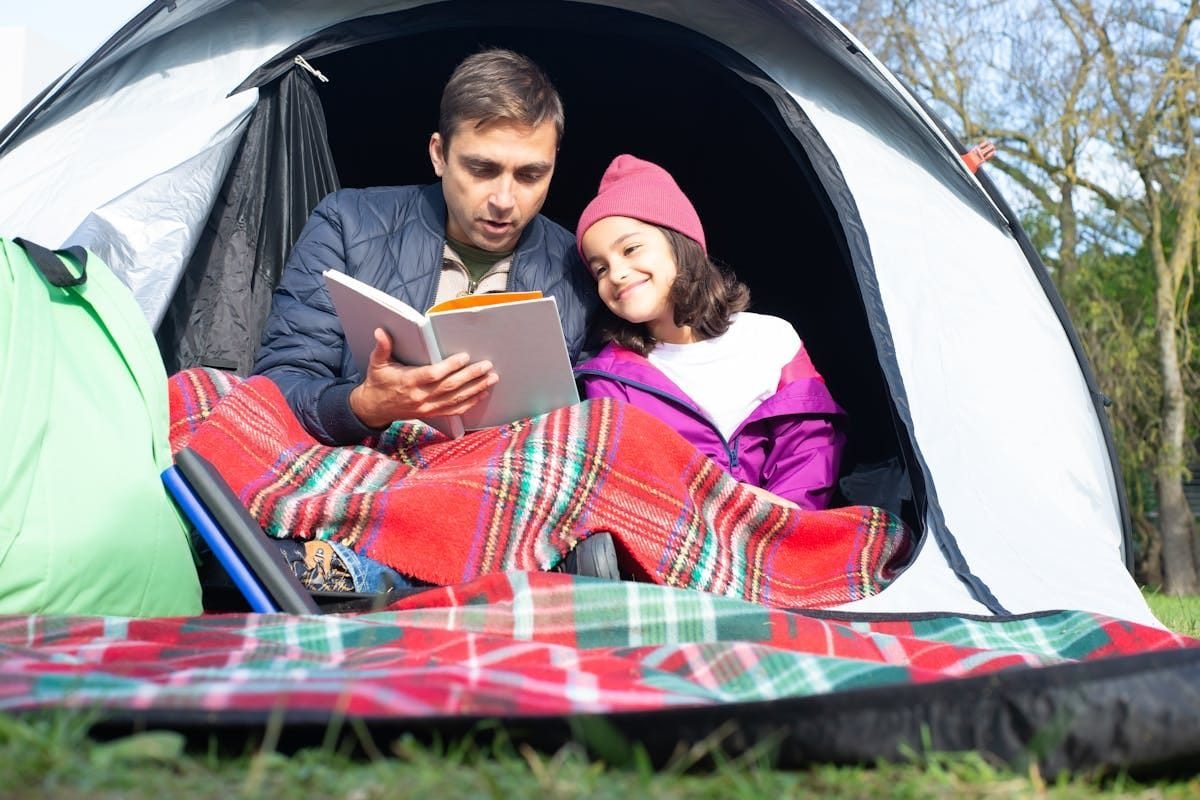
A camping trip with children or pets can transform into a genuinely enriching adventure, provided you’re well-prepared. With good planning, you can enjoy nature trails, roast marshmallows over a campfire, and stargaze. These activities can create lasting memories. Having the right gear, supplies, and safety measures will help everyone enjoy the outdoors. This also encourages exploration and bonding. Here’s how to make it fun for everyone:
- Activities: Bring games, toys, and nature guides to entertain kids.
- Comfort: Pack extra blankets, pillows, and favorite snacks.
- Pet Safety: Bring a leash, food, water, and a first aid kit for your furry friend.
7. Budget-Friendly Camping Tips.
Camping can be an affordable adventure that won’t strain your wallet. Here’s how to save money:
- Borrow Gear: Ask friends or family for camping equipment instead of buying new.
- Cook Your Meals: Avoid eating out by preparing meals at the campsite.
- Choose Free Campsites: Look for public lands or dispersed camping areas.
8. Solo Camping Tips.
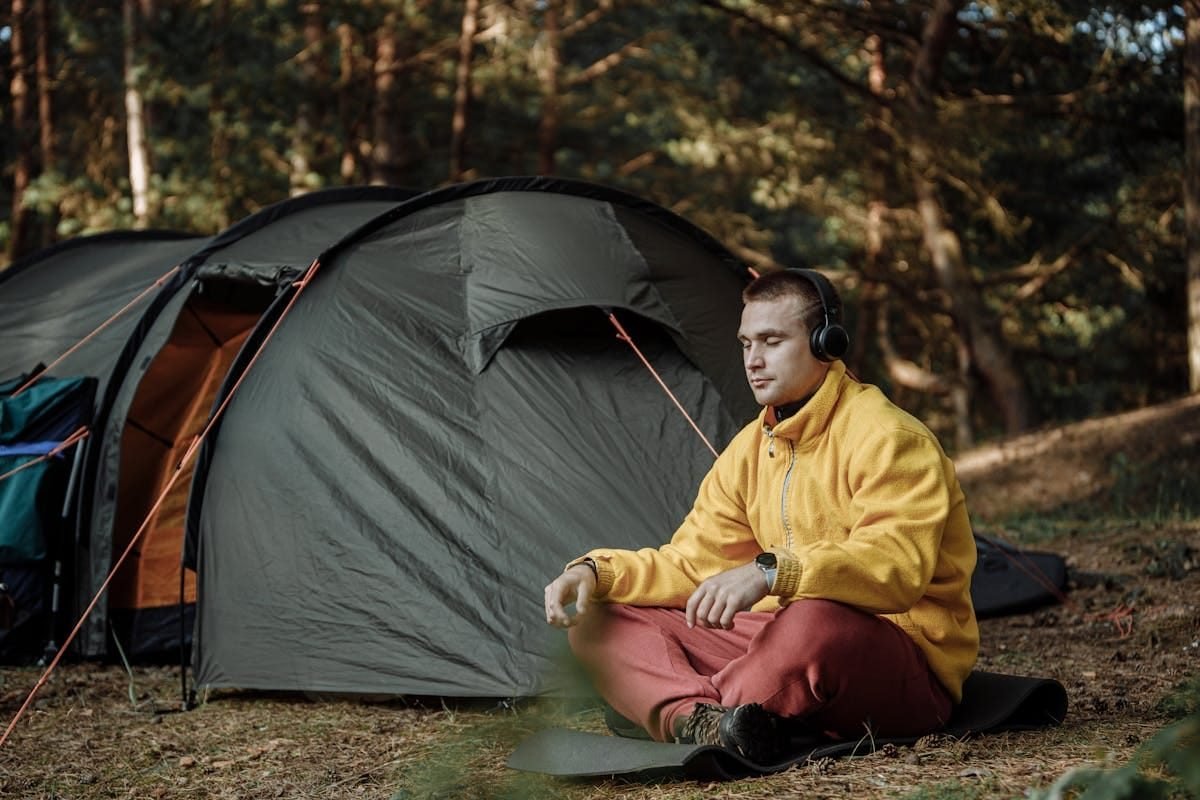
Embarking on a solo camping adventure can transform into a beautifully serene and empowering journey. The tranquillity of nature envelops you, allowing for moments of reflection and introspection. With each rustle of leaves and the gentle whisper of the wind, you find a deep sense of connection with your surroundings. Under the wide sky of stars, you enjoy the freedom to explore at your speed. You make every choice just for yourself. This solitude helps your spirit grow. It sparks a deep sense of self-reliance and confidence. This makes the experience truly unforgettable. Here’s how to do it safely:
- Start Small: Choose a familiar, well-populated campground for your first solo trip.
- Stay Connected: Bring a phone or charger, and let someone know your plans.
- Trust Your Instincts: Don’t hesitate to leave if something feels off.
9. Seasonal Camping Tips.
Each season brings its own unique set of demands, requiring us to adapt our preparations accordingly. Here’s how to camp year-round:
- Spring: Pack rain gear and be prepared for muddy trails.
- Summer: Bring sunscreen, bug spray, and plenty of water.
- Fall: Layer up for cooler temperatures and enjoy the foliage.
- Winter: Invest in a four-season tent and warm sleeping gear.
10. Leave No Trace.
Respecting nature is important for protecting our environment. It helps keep the beauty and diversity of the outdoors for future generations. Follow these Leave No Trace principles:
- Pack It In, Pack It Out: Take all trash with you.
- Minimize Campfire Impact: Use a camp stove or established fire rings.
- Respect Wildlife: Observe animals from a distance and don’t feed them.
Conclusion
Planning a camping trip can be simple. It’s about making memories with nature and the people around you. By learning how to plan a camping trip and following a thoughtful approach, you can enjoy all the benefits of camping without the stress. Choosing the right gear and planning meals and activities are important. Each step helps create a safe and fun adventure. Now it’s time to put your plan into action, head out into the wilderness, and create memories that will last a lifetime!






